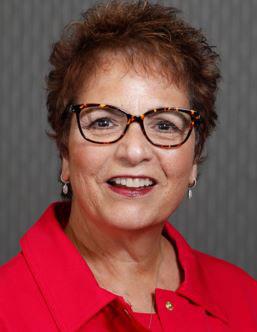As a three-time breast cancer survivor and a scientist, Electra Paskett, Ph.D., has considerable insight on the impact of breast cancer research. In a career spanning more than three decades, the cancer epidemiologist has applied her dual perspective to investigating several sides of cancer’s long trajectory: asymptomatic screening, symptom management, and survivorship.
Throughout it all, her central focus continues to be health disparities in the areas of cancer prevention (particularly HPV vaccination) and early detection; in access to diagnostic and treatment services; and -in survivorship. She was instrumental in testing cancer control innovations such as bringing mobile mammography screening to communities; enlisting patient navigators to guide underserved patients through the maze of healthcare options; and identifying the economic and social barriers that prevent many people from getting the cancer care they need, especially in rural communities with scant healthcare resources.
Dr. Paskett was 40 years old when she had the initial breast cancer diagnosis, and has endured several surgeries, chemotherapy and radiation therapy. The lymphedema she experienced as a breast cancer patient inspired her to lead a clinical trial to study an intervention to prevent lymphedema, which can affect function and quality of life.
Working as a research assistant in a group led by Maureen Henderson, M.D., Dr.Ph., Dr. Paskett’s initial research focused on reasons women with positive Pap smears did not return for follow-up treatments. She found that underserved women do not seek proper medical care for a wide variety of reasons related to access to medical care, transportation, financial burden, misinformation, and other social and familial factors.
Since 2002, Dr. Paskett has served as the Marion Rowley Chair in cancer research at Ohio State University and director of the Division of Epidemiology in the College of Public Health. The nationally recognized program deals with four major areas of research, using a team science approach to understand and devise intervention strategies to address cancer health disparities. She is Director of the Alliance Cancer Control Program and principal investigator for the Alliance NCORP Research Base.
To learn more about Dr. Paskett, read this article in the ASCO Post.

